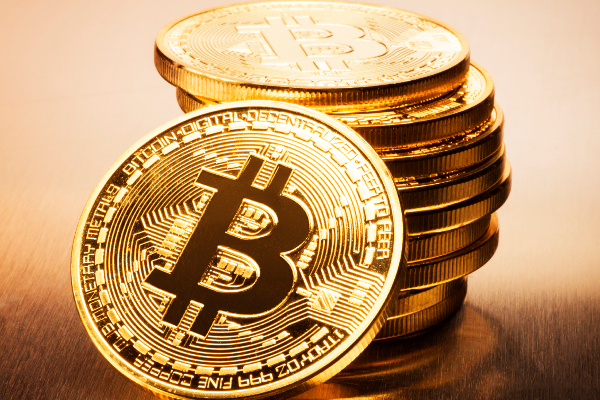New cryptocurrency and blockchain shares ETF launches
Tom Bailey compares the VanEck Digital Assets ETF to the Invesco Elwood Global Blockchain ETF.
30th June 2021 11:37
by Tom Bailey from interactive investor
Tom Bailey compares the VanEck Digital Assets ETF to the Invesco Elwood Global Blockchain ETF.

It has been a rough few months for bitcoin and other cryptocurrencies. According to the S&P Bitcoin Index, bitcoin has lost around 40% since the end of March. Measured since the start of June, it has lost 6.5%. Its biggest rival, ethereum has fared better, clocking a gain of 11.4% since the end of March. However, measured from the start of June, it is down by almost 20%.
Despite this volatility, many investors are convinced that cryptocurrencies and blockchain technology have a future. For many, one potentially less volatile way to gain access to this theme has been to buy companies that track shares in related companies. The Invesco Elwood Global Blockchain ETF GBP (LSE:BCHS) has proven popular in this regard. Now, however, investors have a rival option: the recently launched VanEck Vectors™ Digital Ast Eq ETF A USD (LSE:DAPP).
Differences between the two ETFs
To understand the difference between the two exchange-traded funds (ETFs), it is perhaps best to first explain the Invesco ETF.
- Invest with ii: Top ETFs|Share Prices Today | Open a Trading Account
This ETF tracks the Elwood Blockchain Global Equity Index. While it has plenty of exposure to cryptocurrency ‘pure plays’, it has a much wider remit, investing in companies deemed able to tap into the “potential growth of blockchain technology”. As Invesco notes, the ETF provides exposure to companies that “participate or have the potential to participate in the blockchain ecosystem”.
- Cryptocurrency crash takes its toll on popular blockchain ETF
- Blockchain ETFs: a way to gain bitcoin exposure?
The ETF is composed of 50 shares. Of these, according to a recent update from Elwood, around 17 can be described as cryptocurrency pure plays. These are largely companies involved in either cryptocurrency mining or exchanges.
The rest of the portfolio, however, is comprised of companies deemed to have the potential to “tap into the growth” of blockchain technology, not necessarily cryptocurrencies. As a result, there are some constituents whose involvement in the theme can seem somewhat tangential. For example, it includes Rio Tinto (LSE:RIO), Amazon (NASDAQ:AMZN), Taiwan Semiconductors (NYSE:TSM), Nasdaq (NASDAQ:NDAQ), Banco Santander (LSE:BNC) and Mitsubishi (NYSE:MUFG).
The VanEck ETF is potentially a more pure-play approach for exposure to the cryptocurrency theme. Tracking the MVIS Global Digital Assets Equity Index, it has exposure to 25 shares.
The index provider defines the inclusion requirement as such: “Its unique pure-play approach requires that companies have to generate at least 50% of their revenues from digital asset exchanges, payment gateways, mining operations, software services, equipment and technology or services to the digital assets industry, digital asset infrastructure businesses, or companies facilitating commerce with the use of digital assets.”
- Scottish Mortgage dips its toes into cryptocurrency
- The final frontier for investors: space exploration ETFs and trusts
- Factor or sector ETFs: which were best for riding the value rally?
Its current holdings suggest a much tighter focus on cryptocurrency-related companies. One exception is the inclusion of TSMC, which is currently around 5% of the index that the VanEck ETF tracks. This company is a chip-maker and can be justified on the basis that chips will play a major role in facilitating the use of blockchain technology. However, it appears that the ETF has less of the tangential plays than the Invesco ETF.
In terms of performance, data for the VanEck ETF goes back only to 1 May 2021. Since then, the ETF has lost 16.5%. In contrast, the Invesco ETF has lost 7% over the same period.
This is perhaps explained by the more pure-play approach of the VanEck ETF. Since the start of May, cryptocurrency prices have been volatile and therefore pure-play crypto stocks will have also suffered. That’s obviously taken a toll on the Invesco ETF too, but the large number of less than pure-play stocks in the portfolio will likely have offset this.
Of course, this works both ways: it is conceivable that if cryptocurrencies stage a new rally, the VanEck ETF will enjoy more upside.
Both ETFs charge an ongoing fee of 0.65%.
These articles are provided for information purposes only. Occasionally, an opinion about whether to buy or sell a specific investment may be provided by third parties. The content is not intended to be a personal recommendation to buy or sell any financial instrument or product, or to adopt any investment strategy as it is not provided based on an assessment of your investing knowledge and experience, your financial situation or your investment objectives. The value of your investments, and the income derived from them, may go down as well as up. You may not get back all the money that you invest. The investments referred to in this article may not be suitable for all investors, and if in doubt, an investor should seek advice from a qualified investment adviser.
Full performance can be found on the company or index summary page on the interactive investor website. Simply click on the company's or index name highlighted in the article.